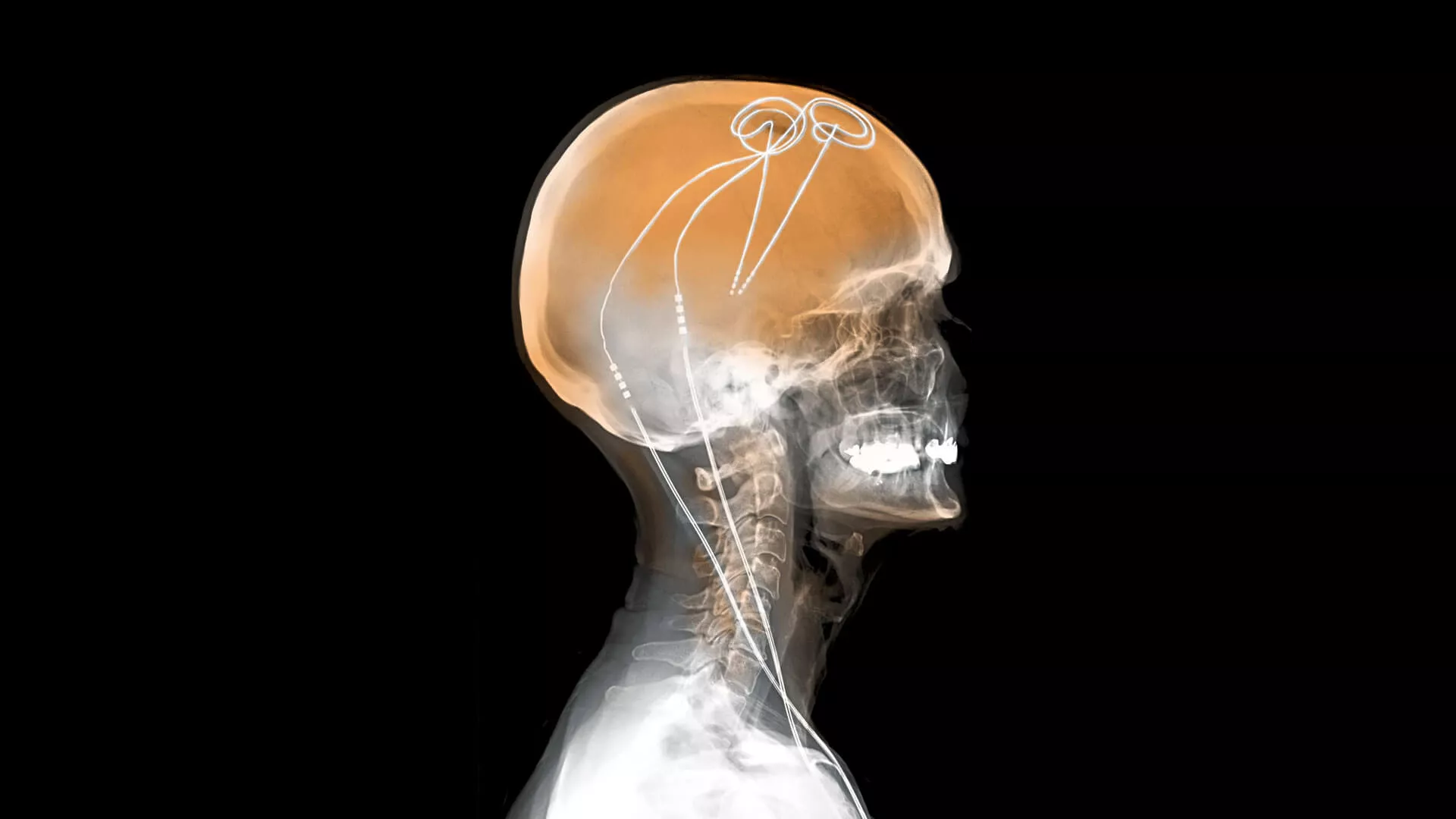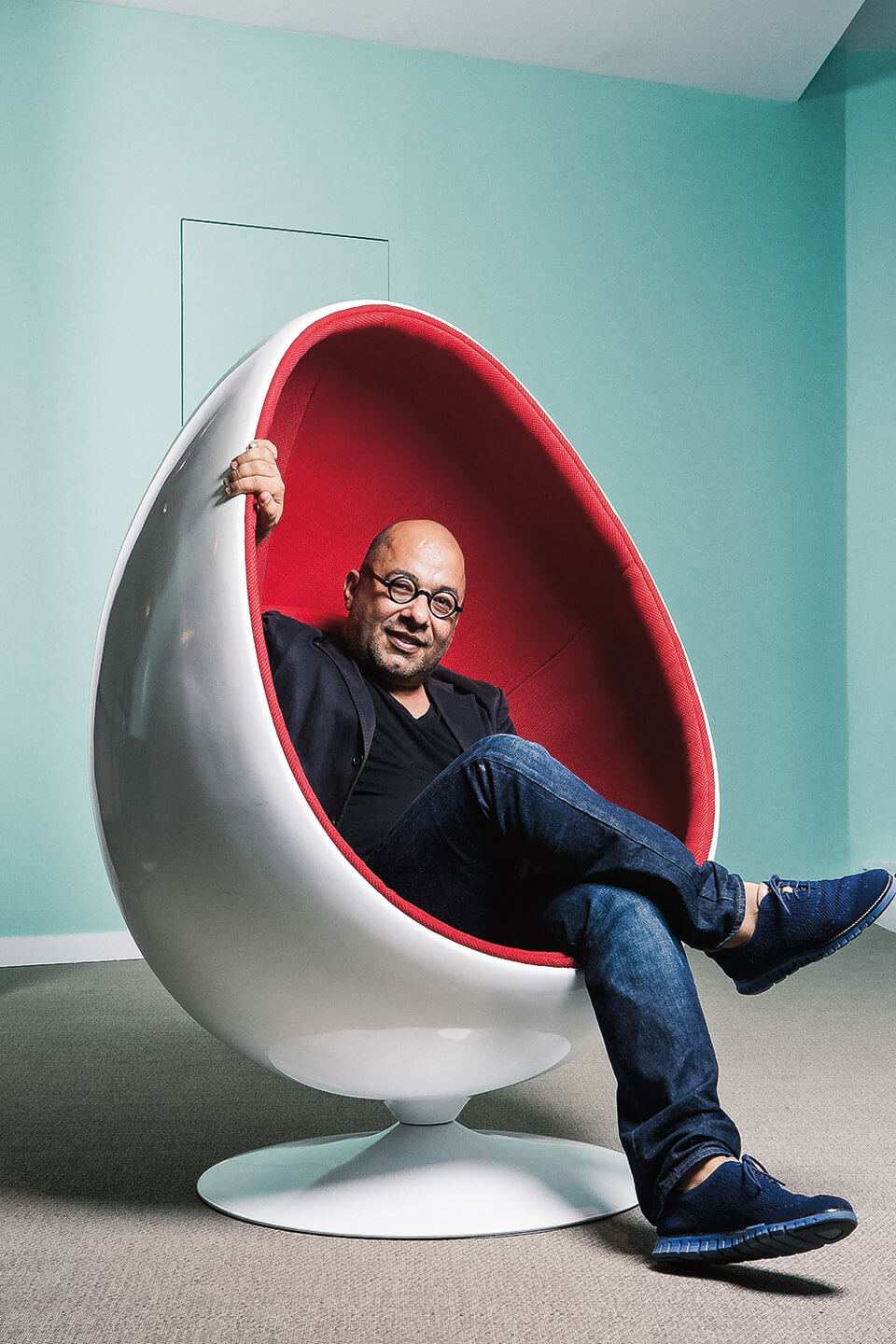
From human repair to human enhancement

Newton Howard
is Professor of Computational Neurosciences and Neurosurgery at Oxford University. He runs the Computational Neuroscience Lab as well as the Synthetic Intelligence Lab at MIT. He also founded the Howard Brain Sciences Foundation and C4ADS, a think tank. With his start-up ni2o, he has developed Kiwi, a brain implant designed to treat neurodegenerative diseases such as Parkinson and Alzheimer’s.

Jean-Michel Besnier
is Emeritus Professor of Philosophy at the Sorbonne University, Head of the Connected Health and Human Enhancement Division at the Institute of Science and Communication, CNRS /Sorbonne University.
He is the author of many books such as Do Robots Love? (2016; with Laurent Alexandre), Tomorrow, Posthumans (2017) and Simplified Man (2012).
What is an enhanced human?
Jean-Michel Besnier: An enhanced human is not one simply repaired or one whose life has been artificially prolonged by technological means.
A person who wears a hearing-aid, for example, is simply “repaired”. An “enhanced human” is one who has his or her cognitive or sensory motor performance strengthened and possesses skills and faculties that are not a normal part of being human. We really begin to talk about an enhancement when, for example, genetic engineering might be used to insert genes of other species into the human genome (e.g., bat genes to increase hearing abilities), as envisaged by some. The enhanced human is closer to a cyborg, in which organism and cybernetics become one. Artifacts — exoskeletons, prostheses, self-regulated implants — enable a person to perform with a prowess that can no longer be considered entirely human.
The question of how we define the boundaries of what it is to be human is thus raised. At what point and to what extent do these cybernetic devices, this hybridization between human and machine, turn the human into the non-human?
Does this enhanced human already exist?
J.-M. B: It is still in its embryonic stage. However, in the military field, research aimed at creating the enhanced soldier — sensitive to infrared, capable of operating on minimal sleep and carrying very heavy loads, for example — is quite advanced.
In recent news, the announcement at the end of 2018 of the birth of Chinese twins with a genetic mutation that might protect them from the AIDS virus illustrates a definite interest in increasing human performance beyond that which is considered natural.
“Human nature is plastic, and it is not about depriving ourselves of the techniques that repair the human body.”
JEAN-MICHEL BESNIER
Newton Howard, you are currently developing the Kiwi brain implant. Is this a further step towards an enhanced human?
Newton Howard: Scientific studies are in general agreement on one point: brain mass has actually declined considerably as humans have evolved. As the human race has matured, it has actually lost in global cognitive ability.
We want to help humans regain their prior mental capacity. So we prefer to talk about a repaired human rather than an enhanced human. We don’t want to create a “cyberman”, we just want to offer people the opportunity to take full advantage (once more) of their cognitive abilities. In the short term, within three to five years, with our Kiwi chip, comprising several microprocessors, we will be able to repair faulty brain functioning to compensate for the loss of cognitive abilities that come with age or because of pathologies such as arkinson’s or Alzheimer’s... This is not science fiction!
What is the impact of artificial intelligence (AI) on your work in neuroscience?
N.H.: I think the brain is the key to medicine and the future of AI. The gap between AI and the brain is huge, infinite, and in a sense this will always be the case. The human brain is a constantly evolving and plastic thing; like its own galaxy or its own universe... Conventional understanding of AI consists of imitating the human brain using machines, but I have always disagreed with this somewhat classical approach. AI is first and foremost about trying to understand how natural systems produce consciousness and thus how we can correct the natural deficits that occur over time! The most advanced intelligent system we know of — that of Homo Sapiens— is very complex.
We have only now, for example, understood that the brain is composed of more than ten dimensions. We know better what it looks like, but we still haven’t uncovered the mystery of the constellation of thousands of connections that can be found in a single neuron...
Jean-Michel Besnier, you take a critical look at the perspectives opened by the NBICand even speak of a “simplified man”. Why is that?
J.-M. B: Human nature is essentially plastic, and it is certainly not just a question of it being “deprived of” the technologies that might make it possible to “repair” the human body. I am thinking, for example, of the technologies being developed to combat blindness.
Any prosthesis that replaces a limb that does not exist or no longer exists is desirable for a person with a disability. However, at a time when the possibility of realizing dizzying anthropotechnics is emerging, threatening to erase the human-robot, human-animal frontier, I ask the simple question: should we actually allow all that we are capable of undertaking in this field to happen?
The initial work on enhancement technologies have produced results that need to be discussed.
Thus, in the field of neuroscience, therapies that would normally be expected to increase performance — especially concentration — can result in some healthy subjects having a reduction in their capacity for complex tasks. Instead, they promote performance in tasks requiring automation that are similar to the operation of machines. Paradoxically, the enhancement results in a certain loss in sophistication. It is in this sense that the enhanced human can become a simplified human because he or she is reduced to basic behavior patterns, in a format dictated by technology. This scenario comes at the expense of that which we might think of as being essential to being human: language, aesthetic judgement, imagination, moral evaluation and so forth.
Newton Howard, is it clear for your that technologies like Kiwi will improve human life?
N.H.: Technology such as ours will become invaluable for the millions of people with neurodegenerative diseases around the world, as well as their caregivers. Once implanted, Kiwi recreates relationships with neurons, repairing damaged brain or memory, reducing the effects of disease. With the software and our algorithm, we will be able to communicate with neurons to send them the right signal and thus prevent or at least mitigate the symptoms of the disease (memory loss, tremors). The doctor will be able to view patient data on a mobile app for real-time monitoring. We designed the implant to expand the population of treatable patients and go beyond major brain disorders such as Parkinson’s disease and Alzheimer’s disease. We also want to treat OCD (obsessive compulsive disorders), depression, attention deficit disorder and many more. Primarily, we want to help patients regain their dignity and continue to live normal lives, and hopefully, one day, regain neurological health.
Aren’t there risks in wanting to improve humans through technology?
N.H.: Through evolution, we have certainly lost some functional abilities such as higher cognitive functions (perhaps telepathy, intuition, etc.), and maybe some of these abilities could one day be recovered. Perhaps we might increase brain function, speed of learning, memory, even control pain or help the body to heal or get rid itself of cancer.
However, significant risks might lie in forcing our brains to perform tasks for which they were never designed, such as the replication or downloading of consciousness. The brain is neither a computer nor a machine! I also believe that there is a spiritual aspect of the human mind that we will never be able to resolve fully.
Jean-Michel Besnier, can we still regulate NBIC technologies in a way that keeps it human-friendly?
J.-M. B: Yes, we can do so by exercising a certain restraint in our relationships with technology, by resisting the idea that all the transformational possibilities offered by science should necessarily be welcomed. Ethical and pragmatic dimensions should be taken into account when examining the acceptability of certain technical achievements, with a consideration of their advantages and disadvantages, and possible areas of application. Regulation will first require an understanding of individuals and their resistance to the path that transhumanists are inviting us to take.
This regulation must also be based on informed political will; one capable of drawing the line between that those projects which are possible and those which are actually desirable. Technologies that promise to enhance human beings will need to be “politicized” and subjected to democratic arbitration. I have noted with interest the numerous initiatives at third party locations, the so-called fablabs, where young people have been creating high-performance devices, such as prostheses, for those who need them. This shows that user-friendly technology, which exists at the service of human beings, is possible.
“Once implanted, Kiwi recreates relationships with neurons, repairing damaged brain or memory.”
NEWTON HOWARD
Enhancement technologies
Unprecedented technological advancements make it now possible to consider multiple forms of anthropotechnics, including processes that can transform the human body in order to obtain increased physical and mental abilities.
This prospect is opened up by the convergence of four disciplines, NBICs: nanotechnologies that manipulate matter at the atomic scale, biotechnologies, which can reshape life, together with computer science, and cognitive sciences, which focus on the functioning of the human brain.
With the artificial heart from Carmat grafted onto patients or the installation of electronic retinal implants in blind people, human-machine hybridization already exists. But, within a few decades, it will be possible to go even further, by modifying human DNA to fight genetic diseases, making organs with 3D printers, regenerating organs with stem cells and linking brain function to AI devices...
The question is how far can technology redraw the boundaries of what it is to be human? Ethical, cultural and societal debate is needed on the immense challenges that NBICs represent for our future.




